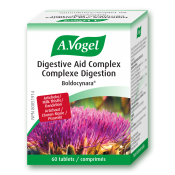Firstly, perimenopause and menopause is a natural transition in a woman's life as her menstrual cycles come to an end. Changes in hormones can cause symptoms like hot flashes, poor sleep and may also negatively affect metabolism and bone density. As much as there are foods that can help ease the symptoms of menopause, others can intensify them.
Trigger symptom watch list:
- Hot flashes/night sweats,
- bloating,
- indigestion,
- reflux,
- fatigue,
- mood swings and
- poor sleep.
Deciphering which foods are friends or foe
There are a wide range of foods that can have an effect on our overall health and menopausal symptoms. A woman in menopause could be more sensitive or triggered by what's on her plate. This occurs because the nervous system is more easily irritated in this stage of her life.
The most obvious foods and drinks that can enhance symptoms are caffeine, alcohol, salty and sweet or processed foods. Fried foods and sugar packed drinks should also be avoided. If you're experiencing many hot flashes, cutting back on spicy foods may help as they are a known hot flash trigger. Even if you're not menopausal, eating a spicy Mexican meal can make you sweat and feel flushed.
High-carb foods like white bread, pasta, rice and potatoes also contribute to cycles of moodiness and fatigue.
Some studies have demonstrated that women with diets high in sugar can experience worse menopausal symptoms than women with diets low in sugar.
Try reducing the intake of processed foods that contain high fructose syrup and other refined sugars. Instead opt for more fibrous, naturally sweet foods like fruit. Fibre obtained from fruits, veggies, and whole grains helps lower and stabilize estrogen levels contrary to the spikes and fluctuations caused by eating lots of sugary substances.
Simple menopause diet choices, such as an avocado with some Herbamare sea salt instead of salty chips for snack could make all the difference in your day and your mood. Eating good fats and proteins can help curb your sugar cravings.
But it's not just the food, it's also the way it's eaten.
- Are you always on the go and feel rushed?
- Do you overeat?
- Is your digestion poor?
These are all things to consider when investigating what is triggering your menopause symptoms. Planning your meals ahead and stocking up on healthy snacks is a good idea for when you're hungry and want to reach for junk food.
Digestive issues
Menopause digestive problems can be triggered by a variety of factors, but the most common cause is hormonal imbalance.
During perimenopause and menopause, women can encounter some form of upset in their esophagus, stomach, or intestines that can provoke bloating, constipation, diarrhea, acid reflux, irritable bowel syndrome (IBS), and more.
When a woman's body winds down its reproductive functions, levels of estrogen and progesterone decrease. These hormones have been found to regulate and influence the gastrointestinal tract. When levels begin to fluctuate it negatively affects healthy digestive functioning.
Better choices for less symptoms
- Omega-3. One study conducted with 483 menopausal women concluded that omega-3 supplements decreased the frequency of hot flashes and the severity of night sweats. Foods that are highest in omega-3 fatty acids include fish and seeds like flax seeds, chia seeds and hemp seeds.
If you want to add an omega supplement to your daily habits, A.Vogel's Vegan Omega3 is an excellent option that is both good for you and the oceans. Made from fresh, organic flaxseed oil and sustainably sourced algae It comes in a small capsule that is easily swallowed, digested and assimilated by the body. Plus it has no fishy smell or aftertaste. - Isoflavones. Plant-based foods that have isoflavones (plant estrogens) work in the body like a weak form of estrogen. As a result, soy may help relieve menopause symptoms, lower cholesterol levels and has even help relieve hot flashes and night sweats. Isoflavones can be found in foods such as tofu and soy milk. Make sure to consume non-GMO and organic tofu products.
You can also use a supplement to get isoflavones. A.Vogel's Menosupport Complex is made of soybean extract, magnesium and red sorrel. This product is beneficial during perimenopause/menopause as it helps to rebalance hormones and alleviate symptoms related to low estrogen. - Eating more fruits and vegetables is always a good way to go. In a one-year intervention study with over 17,000 menopausal women participants, the ones eating more vegetables, fruit, fiber and soy experienced a 19% reduction in hot flashes compared to the control group.
A simple way to start eating more of these good whole foods is to add a smoothie to your daily routine. I like to start my morning with a smoothie. To improve your overall health during menopause, including chia or flax seeds, avocado, hemp hearts, sprouts and berries can all be beneficial. - Staying hydrated is also important. Drink lots of water every day. Menopause is caused by declining levels of hormones including estrogen. Since this hormone helps keep us hydrated, menopause causes our bodies to lose the ability to retain water. So, even if growing up you did just fine without drinking a regular, healthy amount of water, your body now needs a little bit more help.
- Herbal supplements to ease digestion. To relieve bloating and ease digestion, certain herbal supplements such as Digestive Aid Complex can help. It contains dandelion, boldo, artichoke and milk thistle. This poerful combination helps to relieve digestive disturbances that can be experienced during perimenopause and menopause such as slow digestion, acid reflux, and bloating.
References:
https://fdc.nal.usda.gov/ndb/nutrients/index
https://pubmed.ncbi.nlm.nih.gov/18328014/
https://pubmed.ncbi.nlm.nih.gov/21685820/
https://www.ncbi.nlm.nih.gov/pmc/articles/PMC3428489/
https://my.clevelandclinic.org/health/articles/7040-gastrointestinal-disorders






